In the bustling Texan metropolis, the role of a home inspectors Houston area is not just essential; it’s pivotal in making informed decisions about property investments. Houston’s real estate landscape is as diverse as its culture. This extensive guide delves deep into the world of home inspectors in Houston, offering readers an insightful journey into what makes these jobs and home inspection evaluations so critical.
Understanding the Houston Home Inspection Landscape

The Unique Climate and Construction in Houston
Houston’s distinctive climate, characterized by high humidity, heat, and a propensity for flooding, presents unique challenges to residential properties. Understanding how these climatic factors impact home construction and maintenance is crucial for homeowners and inspectors alike. This section explores the various ways in which Houston’s climate affects homes and underscores the importance of thorough inspections in addressing these challenges.
High Humidity and Heat
- Impact on Materials: Houston’s high humidity can lead to swelling and warping of wood, deterioration of building materials, and increased likelihood of mold and mildew growth.
- Ventilation and Air Conditioning: Proper ventilation and efficient air conditioning systems are essential in Houston homes to manage indoor humidity levels and ensure comfortable living conditions.
- Insulation Considerations: Adequate insulation is necessary not just for temperature control but also to prevent condensation-related issues within walls and attics.
Flood Risks and Water Damage
- Flood-Prone Geography: Houston’s flat topography and proximity to the Gulf of Mexico make it particularly susceptible to flooding, especially during hurricane season.
- Foundation and Structural Concerns: Regular inspections of foundations and structures are vital to identify any water damage or weaknesses that could compromise the home’s integrity.
- Flood-Resistant Construction: Homes in flood-prone areas need to incorporate flood-resistant construction techniques, such as elevated structures and materials that can withstand water exposure.
Impact of Extreme Weather Events
- Storm and Wind Damage: The Gulf Coast’s vulnerability to hurricanes and tropical storms necessitates storm-resistant features in homes, like reinforced roofing and impact-resistant windows.
- Emergency Preparedness: Homes should be equipped with measures for emergency situations, including backup power sources and flood protection strategies.
Adaptive Construction Techniques
- Building Materials and Design: The use of materials and design elements that can withstand Houston’s climate, like metal roofing and raised foundations, is essential.
- Landscaping and Drainage: Effective landscaping and drainage solutions are key to managing excess water and protecting the property from flooding.
The Role of Home Inspections
- Identifying Climate-Related Issues: Home inspectors in Houston are trained to identify issues arising from the unique climate, such as signs of humidity damage, inadequate insulation, or flood risk.
- Recommending Preventative Measures: Inspectors can provide valuable advice on preventative measures to mitigate the effects of Houston’s climate on homes.
In Houston, the climate significantly influences home construction and maintenance. Homeowners and potential buyers must be aware of these unique challenges and ensure that their properties are inspected and maintained with these factors in mind. Thorough inspections not only help in identifying current issues but also in taking proactive steps to prevent future damage, thereby ensuring the longevity and safety of homes in this dynamic city.
Standards and Regulations Governing Home Inspections in Houston
Houston, residing within the state of Texas, adheres to a rigorous set of standards and regulations specifically designed to govern home inspections. These regulations are established to ensure that every home inspection upholds the highest level of thoroughness and accuracy, crucial for maintaining the integrity and safety of residential properties.

In Texas, home inspectors must comply with the standards set by the Texas Real Estate Commission (TREC). These standards are comprehensive and detail every aspect of a home inspection, from structural components to electrical systems, plumbing, heating, and air conditioning. TREC’s requirements are not just about ensuring that the physical aspects of the property are inspected; they also mandate that inspectors follow a strict code of ethics and professional conduct, ensuring unbiased and precise assessments.
Furthermore, Houston’s unique climatic conditions and geographical location necessitate additional considerations in the inspection process. The city’s susceptibility to extreme weather, such as hurricanes and flooding, means that home inspectors must also be proficient in evaluating storm damage resilience and flood safety measures. This includes checking the adequacy of drainage systems, the integrity of flood defences, and the condition of waterproofing treatments.
Adherence to these regulations is crucial for home inspectors in Houston. Not only does it ensure compliance with legal requirements, but it also instills confidence in homeowners and buyers about the quality and reliability of the inspection. Inspectors are required to undergo continuous education to stay updated with the latest standards and practices, reflecting the ever-evolving nature of home construction and maintenance in Houston’s dynamic environment.
As a result, when choosing a home inspector in Houston, it’s important for homeowners and real estate professionals to verify that the inspector is fully licensed and compliant with TREC standards, ensuring that the inspection will be thorough, accurate, and in line with the specific needs of Houston homes.
Comprehensive Home Inspection Services in Houston
General Home Inspections: What They Cover
A general home inspection is a crucial process for any potential homeowner or real estate investor in Houston. This comprehensive evaluation covers several key aspects of a property to ensure its safety, functionality, and overall condition. Understanding what is involved in a general home inspection can help you make informed decisions about your property.
Foundation
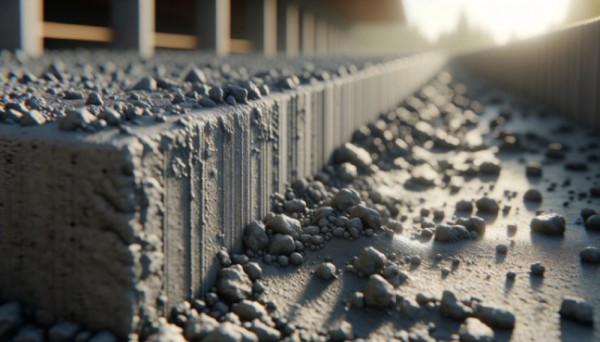
- Inspection Focus: The foundation is thoroughly inspected for signs of cracking, settling, and shifting. Issues in the foundation can lead to significant structural problems in the house.
- Importance: Ensures the structural integrity of the property.
Roof and Attic

- Inspection Focus: Includes examining the condition of shingles, gutters, and downspouts. The attic is checked for proper insulation, ventilation, and signs of leaks or water damage.
- Importance: Identifies potential leaks, insulation problems, and lifespan of the roof.
Electrical Systems
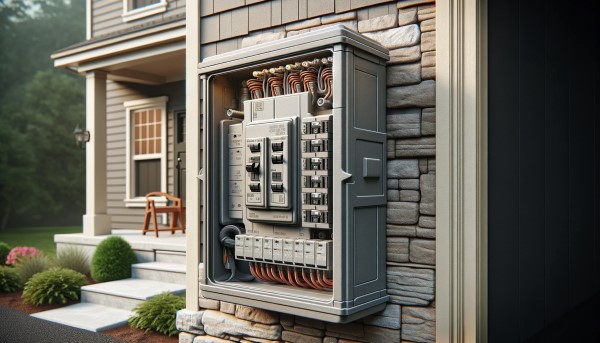
- Inspection Focus: Inspectors evaluate the electrical panels, light switches, and power outlets. They check for proper wiring, grounding, and safety features.
- Importance: Ensures electrical safety and compliance with current standards.
Plumbing
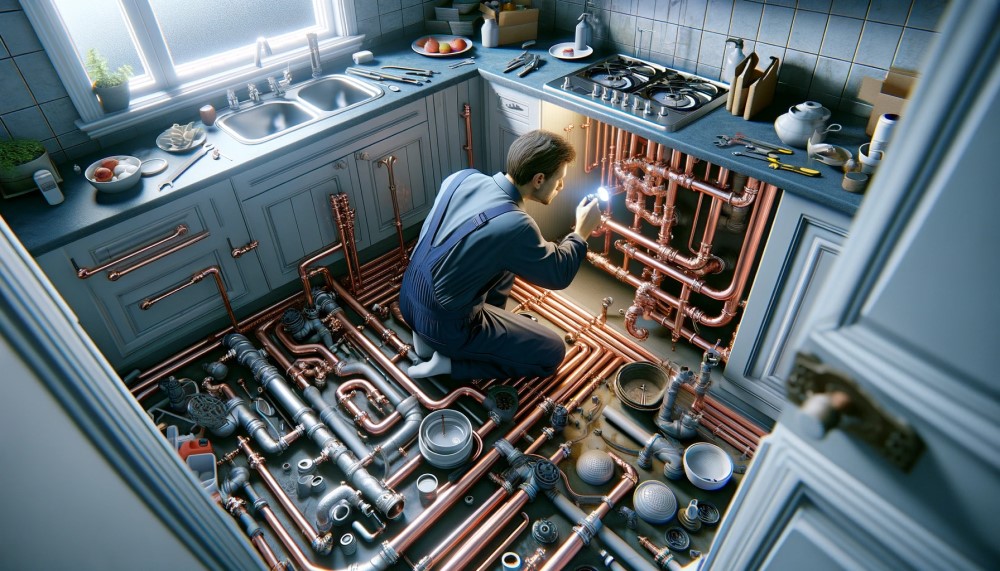
- Inspection Focus: Involves checking pipes, faucets, water heaters, and drainage systems. Inspectors look for leaks, corrosion, and water pressure issues.
- Importance: Prevents plumbing issues and water damage.
HVAC (Heating, Ventilation, and Air Conditioning)
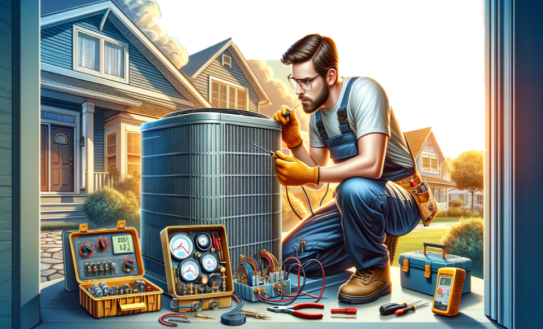
- Inspection Focus: The HVAC system’s condition, age, and efficiency are evaluated. Inspectors look for proper functioning, maintenance history, and potential safety hazards.
- Importance: Ensures a comfortable, energy-efficient, and safe environment.
For a more detailed understanding of what a general home inspection entails, including additional components such as exteriors, interiors, and potential environmental assessments, you can visit the Basics of a Home Inspection page. This resource provides in-depth insights into the general home inspection process, helping you grasp the full scope of what to expect during an evaluation of your Houston property.
Specialized Inspections: Beyond the Basics
Thermal Imaging Inspections: A Deeper Look
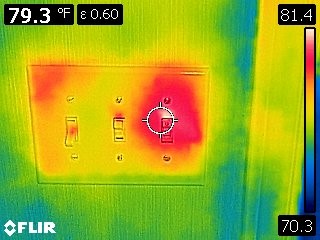
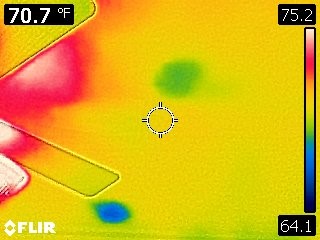
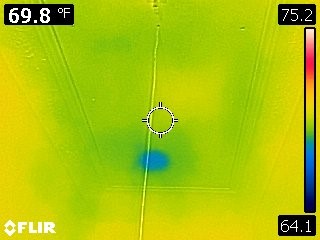
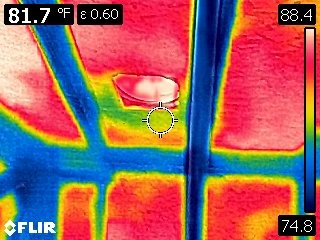
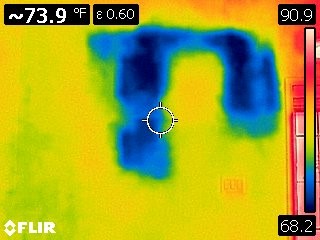
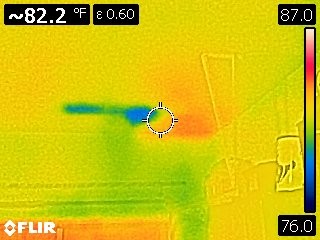
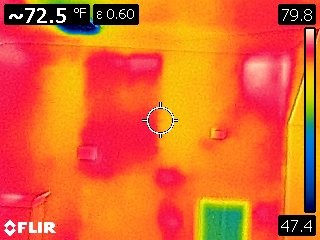
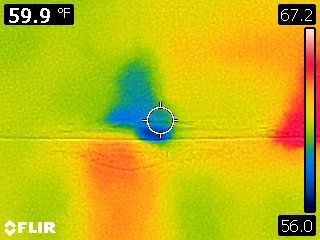
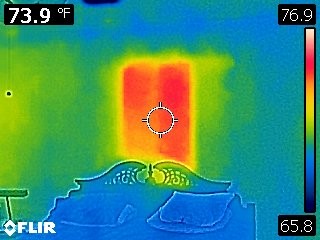
Unveiling the Hidden Issues
Thermal imaging inspections play a pivotal role in modern home inspections, especially in Houston’s diverse housing market. These advanced inspections utilize infrared technology to reveal issues that are invisible to the naked eye, such as hidden water leaks, electrical hot spots, and insulation gaps.
Comprehensive Assessment Areas
- Walls and Insulation: Thermal imaging efficiently detects missing or inadequate insulation, crucial in Houston’s temperature extremes.
- Windows and Doors: Identifies gaps and sealing issues, highlighting areas of energy loss.
- Roof and Attic: Essential for spotting moisture intrusion and ensuring proper attic insulation.
Advanced Diagnostic Capabilities

The power of thermal imaging lies in its ability to diagnose various potential problems:
- Electrical Systems: Identifies overheating circuits or electrical equipment before they become hazardous.
- Plumbing: Detects hidden leaks within walls or under floors, preventing costly water damage.
- HVAC Efficiency: Assesses the performance of heating and cooling systems, ensuring energy efficiency.
Ensuring Home Efficiency and Safety
By offering a non-invasive yet thorough inspection method, thermal imaging contributes significantly to a property’s safety and efficiency. It’s an invaluable tool for detecting problems early, ultimately saving homeowners time and money on potential repairs.
Importance in Houston’s Climate
In Houston, where humidity and heat can impact buildings significantly, thermal imaging provides a critical assessment tool, ensuring homes meet the unique challenges of the climate.
To learn more about the benefits and details of thermal imaging inspections provided by SEI Home Inspections, visit their Thermal Imaging Inspection page for comprehensive insights.
Energy Efficiency Inspections: Enhancing Sustainability in Houston Homes

Energy efficiency is a key consideration for homeowners in Houston, and energy efficiency inspections are instrumental in ensuring homes are eco-friendly and economically viable. Conducted by experts at SEI Home Inspections, these inspections help identify areas where energy use can be optimized for significant savings and a reduced carbon footprint.
Core Aspects of Energy Efficiency Inspections
- Insulation and Ventilation Evaluation: Checking the effectiveness of insulation and ventilation in maintaining a comfortable indoor climate while reducing energy waste.
- Window and Door Assessment: Inspecting for air leaks that could contribute to energy loss.
- HVAC Efficiency Analysis: Examining heating and cooling systems for optimal performance and energy use.
Advantages of Energy Efficiency Inspections
- Reduced Costs: Pinpointing and addressing energy inefficiencies can lead to considerable savings on energy bills.
- Environmental Benefits: Efficient energy use contributes to a more sustainable living environment.
- Improved Home Comfort: Effective energy management results in consistent indoor temperatures and better living conditions.
Personalized Improvement Suggestions
Homeowners receive tailored recommendations to enhance their home’s energy efficiency, ranging from simple fixes to more comprehensive system upgrades.
Commitment to Eco-Friendly Living
SEI Home Inspections demonstrates its dedication to sustainable living through these energy efficiency inspections, playing a crucial role in fostering eco-friendly homes in Houston.
For more detailed information on energy efficiency inspections by SEI Home Inspections, please visit their Energy Efficient Homes page.
The Role of Home Inspectors in Houston’s Real Estate Market
For Home Buyers: Making an Informed Purchase
The Power of Insight

For prospective homebuyers, a home inspection is more than a procedural step; it’s a crucial tool in making an informed decision. An expert home inspector provides an unbiased assessment of the property’s condition, identifying any potential issues that could affect its value and the buyer’s quality of life.
Negotiating Leverage

Armed with detailed information about the property’s state, buyers can negotiate more effectively. Whether it’s adjusting the purchase price, requesting repairs before finalizing the deal, or simply gaining peace of mind, a home inspection puts buyers in a stronger position.
Future Expense Forecasting
Home inspections can also help buyers estimate future maintenance costs. Understanding the lifespan of key components like the roof, HVAC system, and plumbing helps in financial planning for upcoming expenses.
For those interested in new constructions, a New Home Inspection is vital to ensure that even newly built properties meet all standards and are free from defects.
For Home Sellers: Preparing for a Smooth Sale
Proactive Problem Solving
A pre-listing home inspection allows sellers to identify and address issues before they become stumbling blocks in the selling process. By tackling repairs upfront, sellers can enhance the appeal of their property, potentially speeding up the sale and achieving a better price.
Building Trust with Buyers
Providing a pre-listing inspection report to potential buyers builds transparency and trust. It demonstrates the seller’s honesty and commitment to maintaining the property, making it more attractive to buyers.
Streamlining the Sale Process
Addressing issues beforehand minimizes the chances of renegotiations or last-minute surprises, leading to a smoother, more efficient selling experience.
For Homeowners: Maintenance and Upkeep
Preventative Measures
Regular home inspections are vital for ongoing maintenance and early identification of potential issues. They help homeowners prevent minor problems from escalating into major repairs, saving money and hassle in the long run.
Enhancing Home Value

Regularly maintained homes retain their value better and are more appealing if and when the owner decides to sell. Inspections contribute to the upkeep of the property, ensuring it remains in top condition.
For insights on how thermal imaging plays a role in preventative maintenance, visit Preventative Maintenance with Thermal Imaging.
Detailed Look at Home Inspection Processes and Techniques
The Tools of Home Inspectors: Advanced Equipment Used
Home inspectors use advanced tools and technologies that play a critical role in providing a thorough and accurate assessment of a property. This section explores some of the key tools and technologies utilized by professional home inspectors and how they contribute to a more comprehensive inspection process.
Moisture Meters
- Purpose: Moisture meters are essential for detecting unseen moisture in a home, which can indicate problems like hidden leaks or potential mold growth.
- Applications: They are particularly useful in areas prone to water intrusion, such as basements, bathrooms, and around windows or roofing.
- Benefits: By identifying moisture issues early, these tools can help prevent more extensive and costly damage in the future.
Infrared (Thermal) Cameras
- Functionality: Infrared cameras allow inspectors to visualize temperature differences in various parts of a home, revealing issues not visible to the naked eye.
- Detecting Hidden Problems: They are invaluable for finding hidden leaks, electrical hot spots, insulation gaps, and pest infestations.
- Preventative Maintenance: Their use aids in preventative maintenance by identifying areas that need attention before they become major issues.
Digital Cameras and Drones
- Visual Documentation: Digital cameras provide clear, detailed photographs of the property’s condition, which are crucial for inspection reports.
- Drone Inspections: Drones equipped with cameras can safely and efficiently inspect hard-to-reach areas like high roofs, chimneys, and upper-story exteriors.
Electronic Reporting Software
- Efficiency and Clarity: Modern home inspectors use electronic reporting software to produce detailed, easy-to-understand reports for clients.
- Incorporating Visuals: These reports often include photos and thermal imaging scans, making it easier for homeowners to understand the findings.
Gas Detectors and Radon Testing Kits
- Gas Leak Detection: Gas detectors are used to identify potential gas leaks, which can be critical in preventing hazardous situations.
- Radon Testing: Radon testing kits detect the presence of radon gas, a known health hazard, ensuring the home’s safety and compliance with health standards.
Electrical Testers
- Safety Checks: Electrical testers, including voltage testers and ground fault circuit interrupters (GFCI) testers, are used to ensure electrical systems are safe and properly functioning.
- Identifying Electrical Issues: These tools help in identifying outdated wiring, faulty outlets, and potential fire hazards.
The use of advanced equipment in home inspections represents the commitment of the industry to provide accurate, thorough, and safe evaluations of properties. These tools enable inspectors to go beyond the surface, uncovering potential issues that might not be apparent during a traditional visual inspection. By leveraging these technologies, home inspectors can offer more detailed insights, ensuring homeowners and buyers are well-informed about the condition of their properties.
Understanding Home Inspection Reports: A Deep Dive
Home inspection reports are comprehensive documents that provide critical information about the condition of a property. Understanding how to read and interpret these reports is essential for homeowners, buyers, and real estate professionals in making informed decisions. This section delves into the key components of a home inspection report and offers guidance on how to effectively understand and utilize the information provided.
Structure of an Inspection Report
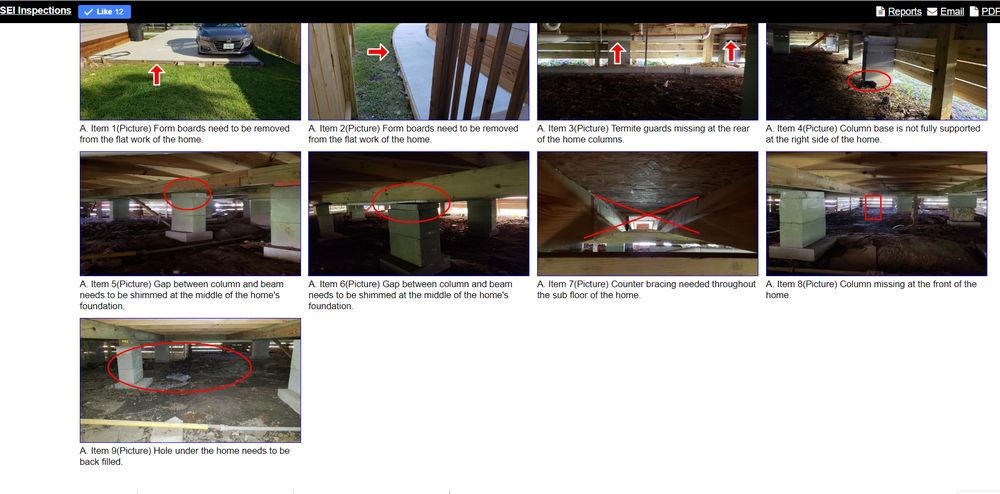
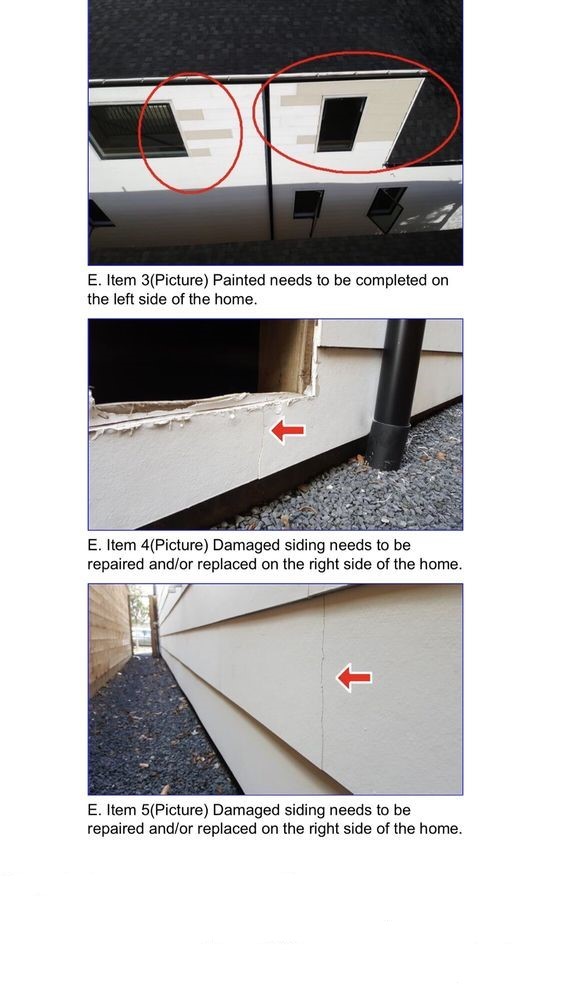
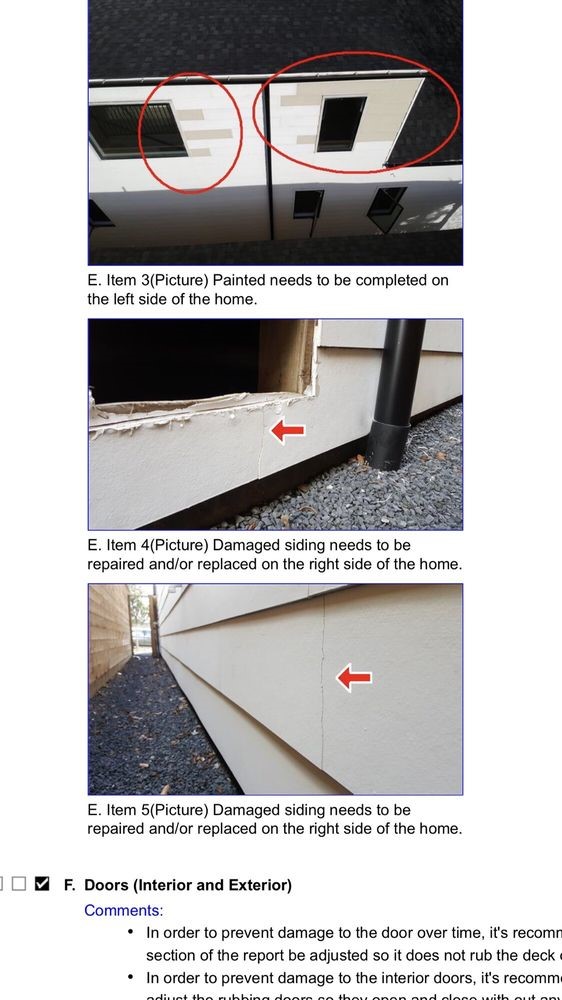
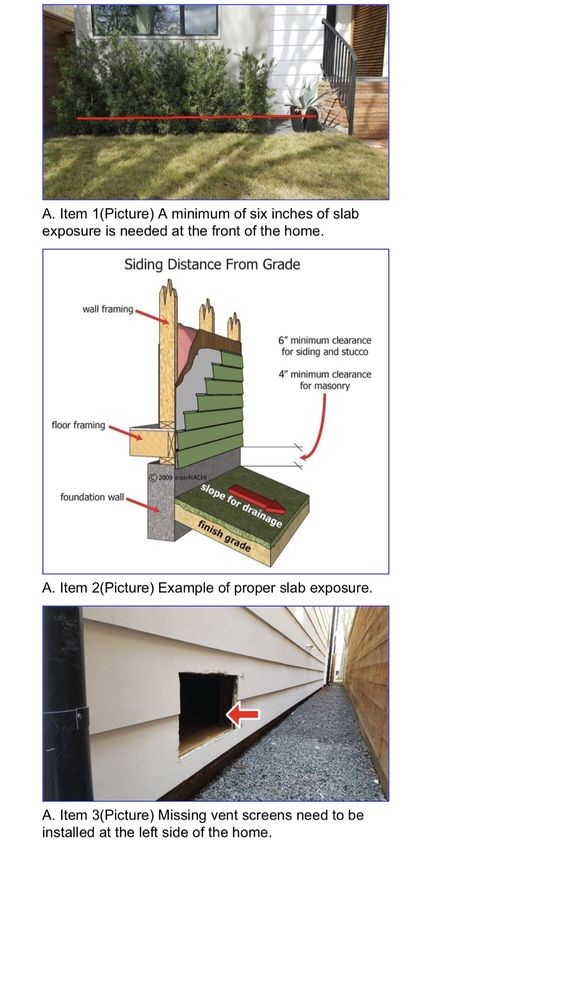
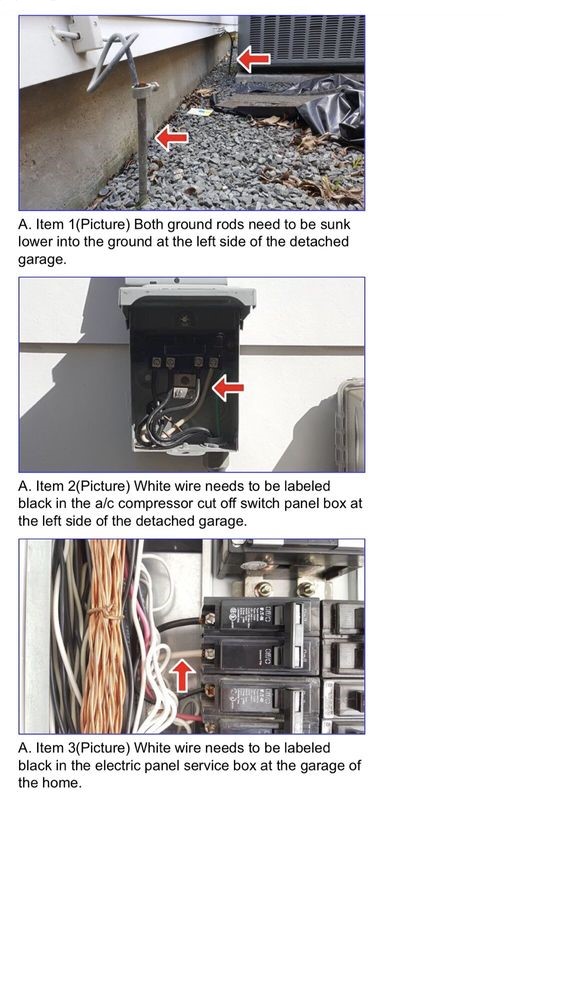
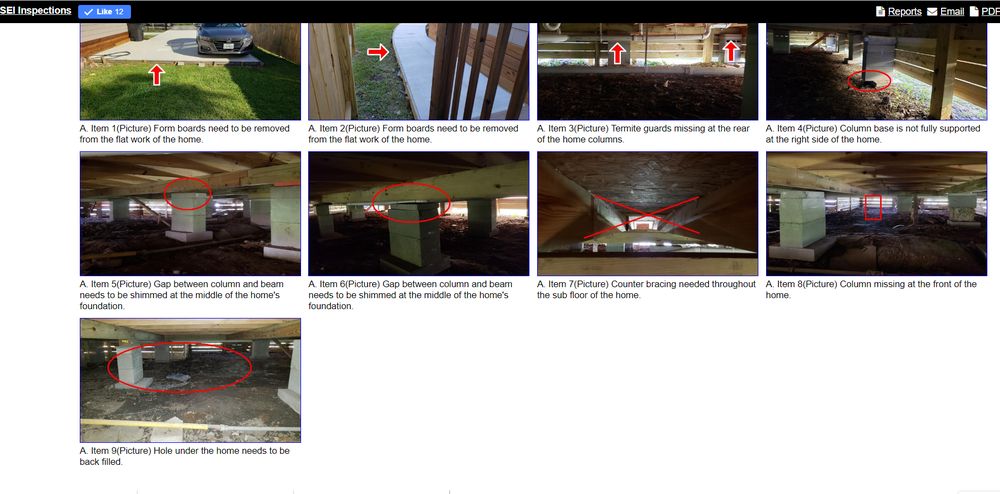
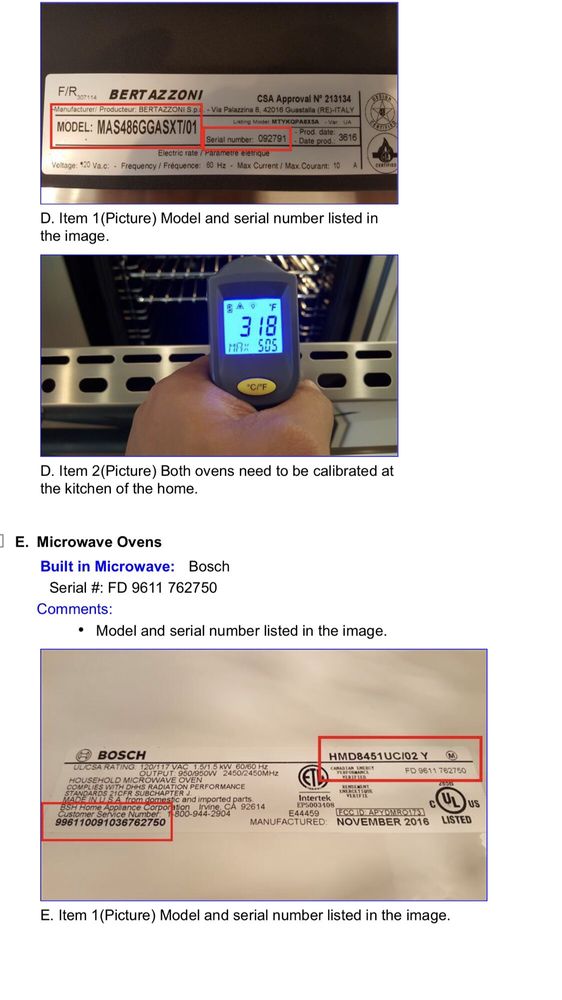
- Summary and Detailed Findings: Most reports begin with a summary of key findings, followed by a detailed analysis of each area inspected.
- Organized by Systems and Components: Reports are typically organized by major systems (like electrical, plumbing, HVAC) and components (such as roofs, foundations, walls).
Interpreting the Findings
- Condition Ratings: Inspectors often use a rating system to describe the condition of various elements (e.g., ‘Good’, ‘Fair’, ‘Poor’, ‘Immediate Repair Needed’).
- Descriptions and Observations: Detailed descriptions and observations provide context for the ratings and help in understanding the severity and implications of any issues found.
Understanding Recommendations
- Repair vs. Replace: Recommendations will often specify whether a component needs repairing, replacing, or just monitoring.
- Prioritizing Actions: Recommendations are also crucial for prioritizing actions, especially when dealing with multiple issues.
Visual Aids and Supplementary Information
- Photographs and Diagrams: Many reports include photos or diagrams to visually illustrate the issues, making them easier to understand and locate.
- Additional Testing or Evaluation: Reports may suggest further specialized testing or evaluations (like a structural engineer assessment) for complex issues.
Navigating Through Technical Jargon
- Glossary of Terms: Some reports include a glossary of technical terms used, aiding in better comprehension.
- Clarification from Inspectors: Never hesitate to contact the inspector for clarification on any aspect of the report you do not understand.
Using the Report for Decision Making
- For Buyers: Use the report to negotiate repairs, adjust the offer, or decide if the property is right for you.
- For Sellers: Address highlighted issues to improve the home’s marketability and value.
- For Homeowners: Use the report as a guide for regular maintenance and future improvements.
Importance in the Houston Market
- Contextual Relevance: In Houston, pay particular attention to issues common in the area, such as flood damage, humidity effects, and HVAC system efficiency.
- Long-Term Planning: The report can serve as a roadmap for long-term maintenance, especially in Houston’s unique climate.
A home inspection report is a powerful tool that provides a snapshot of a property’s condition at the time of inspection. Understanding how to read and use this report is crucial for making well-informed decisions in the real estate process. For further insights and detailed explanations on specific elements of Houston home inspections, visitors are encouraged to explore Houston Home Inspection Insights, offering a wealth of information and resources tailored to the Houston market.
Choosing the Right Home Inspector Houston


Criteria for Selection: Experience, Certifications, and Reviews
Choosing the right home inspector is a critical decision in the home buying or selling process. A thorough and accurate inspection can provide peace of mind, reveal potential issues, and save money in the long run. This section outlines the essential criteria to consider when selecting a home inspector, focusing on their experience, certifications, and customer reviews.
Experience in the Field
- Years of Practice: An experienced inspector brings a depth of knowledge that is invaluable. Look for professionals who have been in the industry for several years.
- Diverse Inspection History: Inspectors who have experience with a variety of homes, including newer and older properties, are likely to have a more comprehensive understanding of potential issues.
Professional Certifications and Training
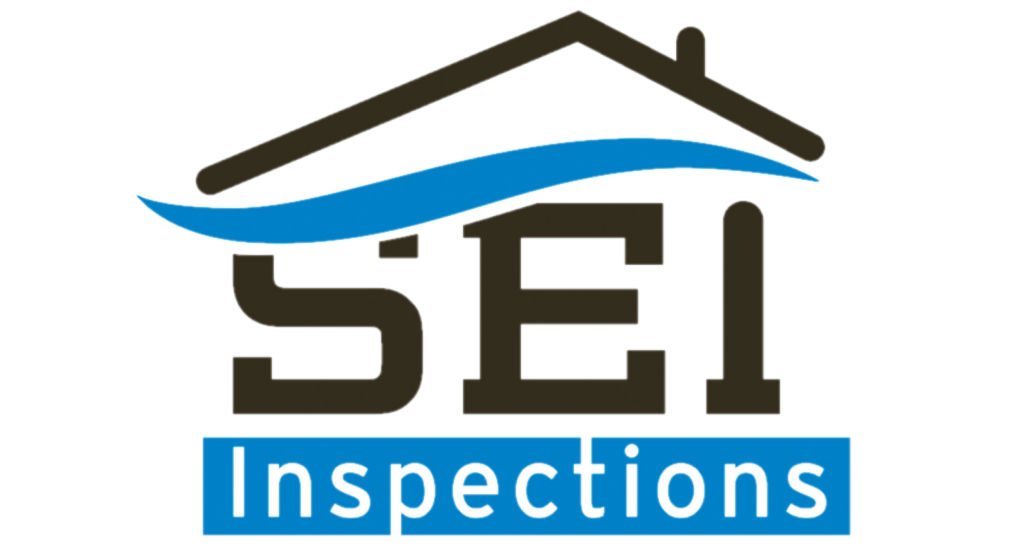
- Relevant Certifications: Certifications from recognized organizations like the American Society of Home Inspectors (ASHI) or the International Association of Certified Home Inspectors (InterNACHI) indicate a level of professionalism and adherence to industry standards.
- Continuing Education: A good inspector is always learning. Look for inspectors who engage in ongoing training to keep up with the latest in building science and inspection technology.
Customer Reviews and Testimonials
- Client Feedback: Customer reviews can provide insights into the inspector’s thoroughness, professionalism, and ability to communicate findings effectively.
- Referrals and Recommendations: Personal referrals from friends, family, or real estate professionals can also be a valuable resource when selecting an inspector.
Specialization and Local Knowledge
- Area-Specific Experience: Inspectors with experience in your specific geographic area will be more familiar with local construction practices and common issues, especially important in regions like Houston with unique climate-related challenges.
- Specialized Services: Some inspectors offer specialized services, such as radon testing, thermal imaging, or energy audits. Consider whether these services are relevant to your needs.
Licensing and Insurance
- State Requirements: Ensure the inspector meets all state licensing requirements. In Texas, for example, inspectors must be licensed by the Texas Real Estate Commission.
- Professional Liability Insurance: This protects you in case an inspector misses something significant during the inspection.
Setting Expectations
- Clear Communication: Choose an inspector who communicates clearly about what their service includes and what to expect from their report.
- Availability for Questions: Post-inspection, you should be able to discuss the report and any concerns with the inspector.
Selecting the right home inspector is about balancing their experience, certifications, customer feedback, and your specific needs. A well-chosen inspector not only identifies potential problems but also provides insights that can help in maintaining and enjoying your home. For a more detailed guide on selecting the ideal home inspector, including questions to ask and what to look for, visit How to Choose a Home Inspector. This resource will equip you with the knowledge to make an informed decision tailored to your requirements in the Houston market.
Scheduling Your Home Inspection
Scheduling a home inspection is a critical step in the home buying or selling process. A proper inspection can uncover potential issues, provide peace of mind, and inform crucial decisions. This guide simplifies the process of scheduling a home inspection, ensuring it’s a smooth and efficient experience for homeowners, buyers, and sellers in Houston.
Step 1: Research and Select an Inspector
- Identify Potential Inspectors: Start by compiling a list of potential inspectors. Use online resources, referrals, and reviews to create a shortlist.
- Verify Credentials: Check their certifications, experience, and reviews. Ensure they meet Texas’ licensing requirements.
Step 2: Contact Inspectors for Availability and Quotes
- Reach Out: Contact the inspectors on your list to inquire about their availability. This is particularly important if you have a tight timeline.
- Get Quotes: Ask for a detailed quote. Make sure you understand what’s included in the inspection fee.
Step 3: Discuss Specific Needs and Concerns
- Special Requirements: If your property has unique features or you have specific concerns (like a pool or a historic structure), discuss these with the inspector.
- Scope of Inspection: Clarify what the inspection covers. Ask about additional services like radon testing or thermal imaging if needed.
Step 4: Confirm the Appointment
- Set a Date: Once you decide on an inspector who meets your needs, agree on a date and time for the inspection.
- Confirmation Details: Ask for a confirmation email or message that outlines the appointment details, including the date, time, address, and inspection fee.
Step 5: Prepare for the Inspection
- Access to Property: Ensure the inspector will have access to all areas of the property, including the attic, basement, and all mechanical systems.
- Utilities On: Confirm that all utilities are on so the inspector can test systems like HVAC, plumbing, and electrical.
Step 6: Attend the Inspection (Optional but Recommended)
- Be Present: If possible, attend the inspection. This allows you to see issues firsthand and ask questions.
- Understand Findings: Use this opportunity to gain insights into the condition of the property and understand any potential problems.
Step 7: Follow Up
- Review the Report: Carefully review the inspection report once received.
- Ask Questions: Don’t hesitate to contact the inspector if you have questions or need clarification on any part of the report.
Step 8: Plan for Next Steps
- Address Findings: Based on the report, plan any necessary repairs or negotiations.
- Keep Records: Keep the inspection report for future reference, especially if you plan to sell the property later.
Scheduling a home inspection need not be a daunting task. By following these straightforward steps, you can ensure a comprehensive evaluation of your property, providing valuable insights into its condition. For more detailed information and to schedule your home inspection in Houston, visit the Schedule Home Inspection page, where you can find additional resources and set up an appointment with a qualified professional.
Advanced and Niche Home Inspection Services
Historic Homes: Special Considerations in Houston
Houston, with its rich history, is home to numerous historic properties that carry their own unique charm and challenges. Inspecting historic homes requires a specialized approach, considering their age, architectural styles, and the materials used in their construction. This section sheds light on the specific considerations and challenges involved in inspecting historic homes in Houston, offering essential insights for owners and potential buyers of these distinctive properties.
Understanding the Unique Nature of Historic Homes
- Age-Related Challenges: Older homes often face issues related to aging materials and outdated construction methods. This includes potential for structural weaknesses, old plumbing and electrical systems, and less effective insulation.
- Preservation and Restoration: Maintaining the integrity of original features while ensuring the home meets modern safety standards is a delicate balance. This often involves specialized restoration techniques.
Specialized Inspection Techniques for Historic Homes
- Experienced Inspectors: Choose inspectors who have experience with historic homes and are knowledgeable about common issues and preservation practices.
- Detailed Examination: Inspections should be more thorough and detailed, focusing on aspects like the foundation, roof, masonry, and any original fixtures.
Addressing Compliance and Safety
- Building Codes and Regulations: Historic homes may not fully comply with current building codes. Inspectors can advise on managing these discrepancies while respecting the home’s historical value.
- Safety Upgrades: Essential safety upgrades, like fire safety and electrical systems, should be carefully planned to preserve the home’s historical aspects.
Dealing with Materials and Techniques of a Bygone Era
- Unique Materials: Many historic homes feature materials no longer in use, such as plaster walls, leaded glass windows, or specific wood types. These require special care and knowledge to maintain.
- Construction Techniques: Understanding and preserving traditional construction techniques are crucial for maintaining the authenticity and value of the home.
Preservation and Restoration Advice
- Resourceful Recommendations: Inspectors can provide recommendations on preserving original features while making necessary repairs or upgrades.
- Networking with Specialists: Home inspectors can often recommend craftsmen or specialists who have the skills needed for restoring or working with historic materials and techniques.
Preparing for Financial Considerations
- Higher Maintenance Costs: Owners should be prepared for potentially higher maintenance and restoration costs associated with historic homes.
- Insurance and Tax Implications: Understand the insurance requirements and potential tax benefits of owning a historic property in Houston.
Ongoing Maintenance and Care
- Regular Inspections: Due to their age, historic homes benefit from more frequent inspections to catch and address issues early.
- Preservation Over Time: Ongoing maintenance should focus on preserving the home’s historical character while ensuring it remains safe and livable.
Owning a historic home in Houston is both a privilege and a responsibility. The inspection and maintenance of these homes require a specialized approach that respects their heritage and addresses their unique challenges. By understanding and embracing these considerations, owners can ensure that their historic properties continue to be treasured parts of Houston’s rich architectural landscape for generations to come.
Investment Properties: Ensuring Profitability and Safety
Real estate investment in Houston can be a lucrative endeavor, but it hinges significantly on the safety and condition of the properties in question. For investors, understanding the importance of thorough inspections is not just a matter of due diligence – it’s a critical factor in ensuring both the profitability and safety of their investment properties. This section delves into the key aspects that investors should consider to safeguard their investments.
Importance of Initial Inspections
- Comprehensive Evaluation: Before purchasing an investment property, a detailed inspection is indispensable. It helps in uncovering any hidden problems that could require costly repairs later on, affecting the property’s profitability.
- Assessment of Potential Risks: Inspections should assess potential safety risks, like structural issues or outdated electrical systems, which could lead to significant liabilities.
Ongoing Inspections for Maintenance
- Regular Check-ups: Routine inspections are essential for maintaining the property in good condition. This not only helps in retaining or increasing the property’s value but also ensures tenant safety.
- Preventive Maintenance: Identifying and addressing issues before they escalate can save investors considerable costs and hassles in the long run.
Maximizing Property Value
- Upgrades and Improvements: Inspections can reveal opportunities for upgrades or improvements that increase the property’s appeal and value. This could include energy-efficient modifications, which are particularly valuable in Houston’s climate.
- Curb Appeal: Regular inspections also ensure that the property’s exterior remains attractive, which is crucial for maintaining and increasing its market value.
Ensuring Compliance with Regulations
- Adherence to Standards: Investment properties must comply with local building codes and safety standards. Regular inspections ensure ongoing compliance, which is vital for legal protection and tenant safety.
- Updates on Regulations: Houston’s building regulations can change, and staying informed through inspections ensures that the property remains compliant with the latest standards.
Tenant Safety and Satisfaction
- Safety Checks: Ensuring the property is safe for tenants is not only a legal obligation but also impacts tenant satisfaction and retention.
- Responsive Maintenance: Demonstrating a commitment to regular maintenance and quick responses to repair needs can significantly enhance tenant relationships and reduce turnover rates.
Financial Planning
- Budgeting for Repairs and Upkeep: Successful real estate investment involves foresight in financial planning. Allocating funds for regular inspections and maintenance is crucial for the long-term profitability of the property.
- Insurance Considerations: Adequate insurance coverage for potential damages and liabilities is a critical aspect of protecting the investment.
Professional Inspection Services
- Hiring Experts: Utilizing professional inspection services that specialize in investment properties can provide in-depth insights and recommendations specific to real estate investments.
- Documenting Inspections: Keeping detailed records of all inspections and maintenance activities is essential for legal protection and future reference, especially during property transactions.
Post-Inspection Pathways: Making Informed Decisions
Navigating Repairs: From Estimates to Execution
Once you’ve received a detailed home inspection report, the next step is navigating through the necessary repairs. This process can be complex, especially for new homeowners or those unfamiliar with the nuances of home maintenance. This section provides guidance on how to proceed from obtaining repair estimates to the actual execution of the repairs, ensuring your home in Houston remains in top condition.
Understanding Your Inspection Report
- Prioritize Repairs: Start by identifying urgent issues that could affect the safety or structural integrity of your home. These should be addressed first.
- Review Recommendations: Consider the inspector’s recommendations for less urgent repairs, and plan them according to your budget and timeline.
Obtaining Accurate Repair Estimates
- Gather Multiple Quotes: For significant repairs, it’s advisable to obtain quotes from several contractors to ensure you’re getting a fair price.
- Check Credentials: Ensure that the contractors you consider are licensed, insured, and have good reviews or references.
- Understand the Quotes: Make sure you understand what is included in each quote to avoid unexpected costs later.
Planning and Budgeting
- Create a Repair Timeline: Based on the urgency of repairs and your budget, create a timeline for when each repair will be tackled.
- Budgeting for Repairs: Set aside funds for the necessary repairs. Remember, investing in these repairs now can prevent more costly issues in the future.
Execution of Repairs
- Hire Trusted Professionals: Choose contractors you trust to execute the repairs. Their expertise is crucial for quality and long-lasting results.
- Supervise the Work: While you don’t need to micromanage professionals, it’s good to keep an eye on the progress and ensure the work aligns with your expectations.
Post-Repair Review
- Inspect the Completed Work: Once repairs are completed, inspect the work to ensure everything has been done as agreed.
- Keep Records: Maintain a record of all repairs, including before-and-after photos, invoices, and warranty information. This can be crucial for future reference or if you plan to sell your home.
Continuous Monitoring
- Regular Check-ups: After repairs, keep an eye on these areas to ensure the issues don’t recur.
- Schedule Follow-up Inspections: Consider having follow-up inspections, especially for major repairs, to ensure everything is holding up as it should.
For a more detailed understanding of repair costs and to help budget your home repair projects, you can visit Home Repair Estimate Pricing. This resource provides comprehensive insights into typical repair costs and can help you make informed financial decisions about your home maintenance in Houston.
Long-term Home Care: Strategies and Tips
After a comprehensive home inspection, the journey of maintaining a home in Houston’s unique environment begins. Long-term home care is essential for preserving the property’s value, ensuring safety, and minimizing future repair costs. Here are strategies and tips for Houston homeowners to maintain their homes effectively post-inspection.
1. Regular Maintenance Schedule
- Set a Maintenance Calendar: Keep track of regular maintenance tasks such as cleaning gutters, inspecting the roof, and servicing HVAC systems. Seasonal checks are particularly important in Houston’s climate.
- Annual Inspections: Schedule annual inspections for critical areas like the roof, plumbing, and electrical systems to catch any emerging issues early.
2. Addressing Humidity and Heat
- Dehumidifiers and Ventilation: Use dehumidifiers and ensure proper ventilation to combat Houston’s high humidity levels, which can lead to mold and mildew.
- Insulation and Weatherproofing: Regularly check and upgrade insulation, and weatherproof windows and doors to maintain a comfortable indoor environment and reduce energy costs.
3. Flood Preparedness
- Elevate Critical Equipment: In flood-prone areas, consider elevating electrical panels, appliances, and heating systems.
- Regularly Check Drainage Systems: Ensure that gutters and drains are clear and functioning properly to prevent water accumulation.
4. Routine Checks for Pest Control
- Regular Inspections for Pests: Houston’s climate can be conducive to pests. Regular inspections and treatments are necessary to prevent infestations.
- Seal Entry Points: Keep the home sealed from common entry points for pests, including cracks and small openings.
5. Landscaping and Exterior Maintenance
- Tree Trimming: Regularly trim trees to prevent damage from falling limbs, especially during hurricane season.
- Maintain Exterior Paint and Siding: Protect your home from the elements by keeping the exterior paint and siding in good condition.
6. HVAC System Upkeep
- Regular Servicing: Given Houston’s reliance on air conditioning, ensure regular servicing of HVAC units for optimal performance and efficiency.
- Filter Replacements: Replace filters frequently to maintain air quality and system efficiency.
7. Stay Informed and Proactive
- Educate Yourself: Stay informed about common house issues in Houston and how to address them.
- Proactive Repairs: Don’t wait for small issues to become larger problems. Address repairs promptly.
8. Emergency Preparedness
- Have an Emergency Plan: Prepare for extreme weather events with an emergency plan and kit.
- Insurance Review: Regularly review your home insurance to ensure adequate coverage, especially for flood and storm damage.
9. Budgeting for Repairs
- Save for Maintenance: Set aside a budget for home maintenance and unexpected repairs.
- Prioritize Repairs: Focus on repairs that are most critical to the safety and integrity of your home.
By implementing these strategies and maintaining a vigilant approach to home care, Houston homeowners can ensure their properties remain safe, efficient, and comfortable for years to come. Remember, consistent care and attention are key to preventing major issues and preserving the value of your home in the dynamic Houston environment.
Educational Resources and Community Engagement
Learning More About Home Inspections
Encouraging ongoing education is what we love! Visit our about us page and other available resources for learning more about home inspections and maintenance, including workshops and online resources offered by SEI Home Inspections in Houston.
Conclusion: Navigating Houston’s Dynamic Home Inspection Landscape
As we conclude this extensive guide on home inspectors Houston area, it becomes clear that the role of home inspectors and home inspections in this bustling Texan metropolis is not just a formality but a fundamental aspect of the real estate process. This guide has illuminated the various facets of home inspections in Houston, underscoring their pivotal role in making informed property investment decisions.
Critical Understanding for Informed Decisions
The insights provided on the unique climate and construction challenges in Houston highlight the necessity for thorough inspections. The city’s susceptibility to humidity, flooding, and extreme weather conditions makes comprehensive evaluations indispensable for ensuring the structural integrity and safety of homes.
Adherence to High Standards and Regulations
The rigorous standards and regulations set by the Texas Real Estate Commission (TREC), as discussed, are a testament to the commitment to quality and thoroughness in Houston’s home inspection industry. These standards ensure that every inspection is comprehensive, covering all crucial aspects from foundations to HVAC systems, and conducted with the highest level of professionalism and ethical integrity.
Comprehensive Services for Every Need
From general inspections covering all key aspects of a property to specialized services like thermal imaging and energy efficiency assessments, Houston’s home inspection services cater to a wide range of needs. These services not only highlight potential issues but also contribute to the safety, efficiency, and sustainability of homes in the city.
The Role in Houston’s Real Estate Market
The guide has also detailed how home inspections serve as powerful tools for buyers, sellers, and homeowners alike. For buyers, they provide critical insight and negotiating leverage. For sellers, they pave the way for a smoother, more transparent selling process. And for homeowners, regular inspections are key to maintaining the value and integrity of their property.
Emphasis on Continuous Education and Community Engagement
SEI Home Inspections, along with other reputable inspection services in Houston, emphasize the importance of continuous education and staying abreast of the latest developments in home construction and maintenance. Their commitment to community engagement and education further enhances the value they provide to Houston’s residents.
Looking Forward
As Houston continues to grow and evolve, the role of home inspectors will remain integral. The dynamic nature of the city’s real estate landscape, combined with its unique climatic challenges, demands a high level of expertise and diligence from home inspectors.
For anyone navigating the Houston real estate market, whether buying, selling, or maintaining a property, understanding the importance of a thorough and professional home inspection is crucial. By choosing the right home inspector, adhering to the standards, and appreciating the depth of inspection services available, stakeholders in Houston’s real estate can make well-informed, confident decisions about their properties.
SEI Home Inspections offers a range of services, including detailed inspections for new and existing homes, condominiums, and pools. Learn more about their inspection services.
Thermal imaging can reveal hidden issues such as water intrusion and insulation gaps, providing a more comprehensive assessment of the property. See thermal inspection details.
Energy-efficient home inspections focus on identifying ways to improve a home’s sustainability and reduce energy costs. Find out more about energy efficiency.
Their reports are detailed and include video, audio, and images, offering an in-depth analysis of the property’s condition.
Yes, they perform mold inspections using moisture meters and thermal imaging to detect mold and provide air sample analysis.
Their pool inspections thoroughly assess the pool’s condition, including potential repair needs.
Yes, they provide phased inspections for new builds, including pre-drywall, post-drywall, and final inspections. Read about new build home inspections.
Their reports are extremely detailed, including video, audio, and images to provide a comprehensive overview of the home’s condition.
Yes, they provide lifetime inspection advice, assisting with questions and concerns long after the inspection.
Scheduling is straightforward with their online system. Schedule your inspection here.
They cover a wide range of areas in and around Houston. Check their service area.
They can provide detailed repair estimates to help homeowners understand potential costs. Learn more about repair estimates.
Their inspectors are highly experienced and certified, ensuring quality and reliable inspections.
Yes, they conduct comprehensive condominium inspections, including shared walls and gas leak detection.
They use the latest technology and methods, combined with their extensive experience, to provide accurate and reliable inspections.
Yes, they are fully licensed and insured, providing peace of mind to their clients. More information can be found on their About Us page.
The duration of an inspection varies based on the size and complexity of the property. Find out more about the inspection process.
Their commitment to thorough, detailed inspections and excellent customer service sets them apart.










